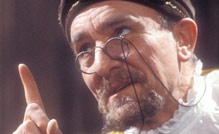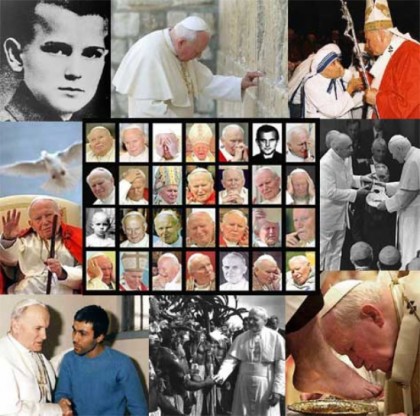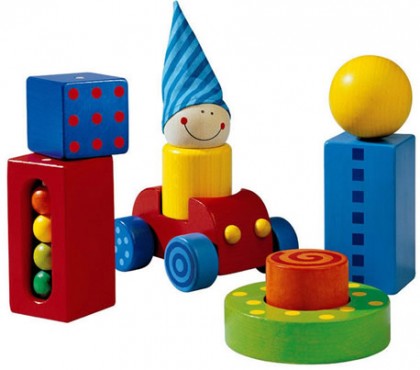The Gabe Axiom
Devra Torres | Oct 8, 2012 | 6 cmts

The other day, my son and I had the following conversation:
Mama: Gabe, why don’t you go play with the toys?
Gabe: Wah! Wah! You’re FORCING me to play with toys!
Mama: Well, what do you WANT to do?
Gabe: I WANT to play with toys, but you can’t make me!
There you have it: love of free will run amok. Gabe is four, but his line of reasoning is common in teenagers,

and even in much older people who really ought to know better.

The core of the Gabe Axiom is this:
The object of my choice doesn’t matter. What matters is that it is I who choose it.
The extremist version (which, unhappily, my son appears to espouse) goes like this:
I will accept even something good and desirable only if older and wiser people forbid it.
Now, I did mention last week the importance of repeatedly strengthening your self-possession

by means of concrete actions. (Maybe Gabe overheard me reading it and misunderstood.) The person is capable of self-possession, and freedom--real personhood--but that control can be threatened by anything from hyperthyroidism to peer pressure to demonic oppression. Self-possession isn't automatic. Still, the idea of truly acting, not merely being acted upon, has a universal appeal.
But what kinds of actions really express, and strengthen, the core of the person?
Shakespeare puts one possible answer into the mouth of Polonius, the "wretched, rash, intruding fool" (and father to Ophelia) in Hamlet:

"This above all: to thine own self be true."

Anthony Esolen analyzes this one memorably here, on the sad occasion of the Australian Girl Guides’ recent decision to include it in their revamped vows (no more swearing loyalty to God, queen, and country).

Lately it goes by the name of “intentional living.” In the seventies it was “authenticity.”
And there’s a grain of truth here.
The idea is that human beings aren’t meant to run on automatic pilot. If we’re going to act for the sake of God, country, or anything else, it shouldn’t be just reflexive. Some actions are performed consciously and deliberately, with full engagement of the will and intellect. Others are performed by a human being but not in a human way. They just “happen in man,” as Karol Wojtyla

puts it in The Acting Person. We’re moved by concupiscence, or by internal or external pressure, or just by routine--factors that bypass our freedom.
This doesn’t mean, though, that our ultimate loyalty should be to our self (as Polonius and the Australian Girl Guides seem to be saying).

Instead, we’re to use our intellect to know, our will to choose, and our heart to grow attached to, the good, the true and the beautiful. We’re not meant to be stuck within (or on) ourselves.
This is the key to understanding something that used to strike me as sleight of hand: the teaching that when man is acting in conformity with the good he’s truly free, but when he's doing whatever he feels like doing, he’s really not free at all.
To the teenage mind, and the contemporary mind in general, that sounds like a fake-out: Gee, what a coincidence. True freedom means doing whatever the grownups, or the Church, or God tells you to do, and false freedom is doing what you actually want to do. How (eye roll) convenient for the establishment.

The key, though, is realizing that people can’t always tell when they’re being un-free. When you’re giving in to concupiscence, you may well believe you’re making an independent decision. In the early stages of an addiction, you feel perfectly free. You say, in all sincerity, things like

“I can stop anytime I want to. I just don’t want to.”
If you do try to stop, you learn by experience that what you thought was freedom was something else entirely.
Or sometimes you imagine you’re freely expressing your individuality and it turns out your “individuality” was mostly your family culture, or your ethnic identity. But you might never find this out until you move out of your parents’ house or your native country.
There’s something else that masquerades as freedom. Sometimes, like Gabe, you think you’re marking out a novel, creative path, breaking free of the shackles of tradition, and it turns out you’re just as predictable as someone who slavishly follows that tradition. I’ve known women who wouldn’t think of making a move before making absolutely sure it was the opposite of what their mothers would have done. That's not freedom; it's just a reflex.
So free will is not quite as simple as my four-year-old believes. But I trust that someday he'll repudiate the Gabe Axiom, put his free will to better use, and be able to enjoy his toys again.


Comments (6)
Katie van Schaijik
Oct 8, 2012 8:11pm
When I first read the Gabe Axiom, I interpretted it positively: "Don't pressure me! Let me choose for myself!"
I think this is maybe because my worst mistakes in mothering were of the overbearing variety.
So I love that he's so little and he's already needing to feel free, not controlled.
But you're right about that other tendency of our fallen natures welling up often and early.
How we need grace!
hungondarcy
Oct 8, 2012 10:50pm
Great post!!
I like how you make everything seem so simple and accesable to all different...mind levels :)
Sapperdepitjes
Oct 9, 2012 6:40am
Freedom is not the capacity to do what you want, but to want what you should.
hungondarcy
Oct 9, 2012 8:52am
Katie, thank you for reminding me that a healthy will and desire to choose for oneself is a good thing. It's not always easy to keep in mind when the subject in question uses his free will to make decisions like "let's see how this nail polish remover tastes" and "I think I'll put this pill into my left nostril."
Hungondarcy, I can't tell you how happy I am to have you join the conversation! I love it when my relatives read my blog without being forced. We did learn as philosophy students that, since philosophy means love of wisdom, it was never meant to turn into an overcomplicated specialty accessible onlty to the erudite few.
Sapperdepitjes, that is, of course, very well put, and it goes to the very important point that freedom is not just a matter of possessing will power but of a heart--a personal core--that is able to see and want what is objectively worth seeing and worth wanting.
Katie van Schaijik
Oct 10, 2012 11:56am
Hmm. I think we've got a technical glitch. I'll ask Jules to fix it.
Devra Torres
Oct 10, 2012 12:15pm
It's all fixed...someone from my household who would like to remain anonymous logged me out and logged herself in. The second comment from "hungondarcy" was actually mine.